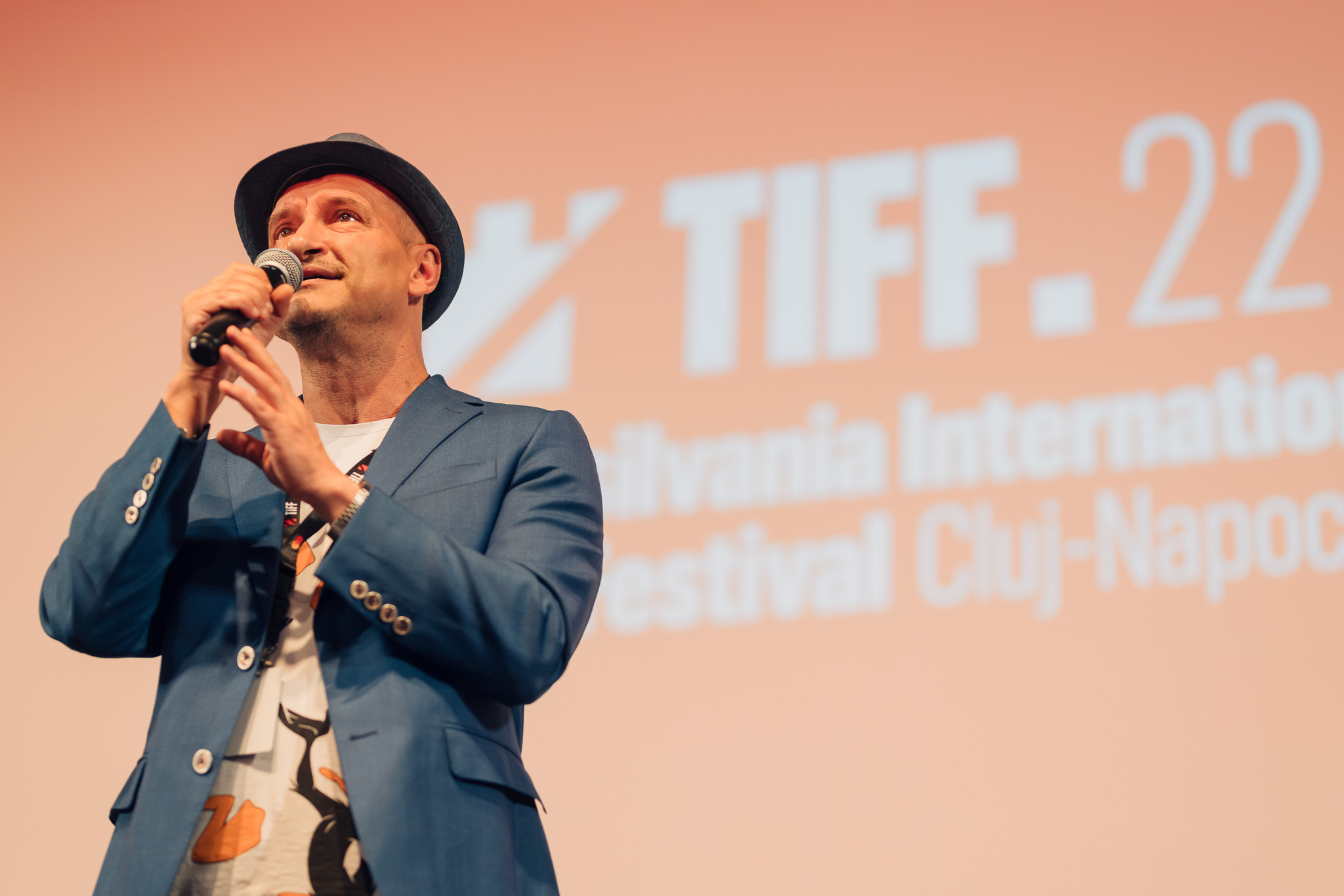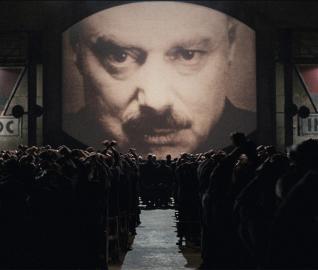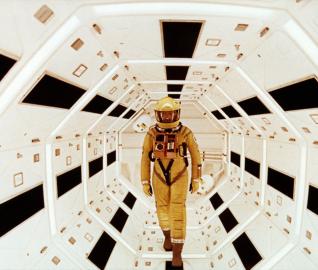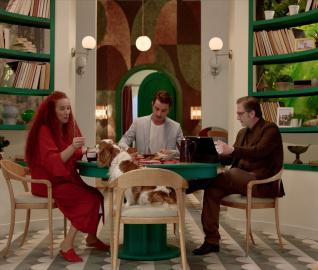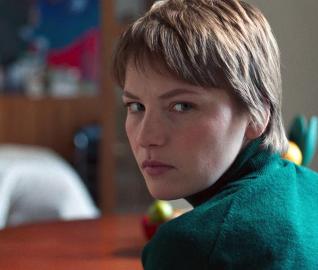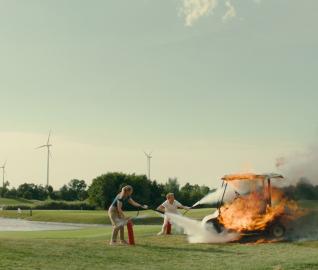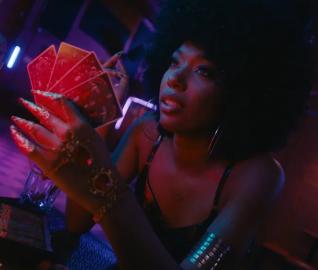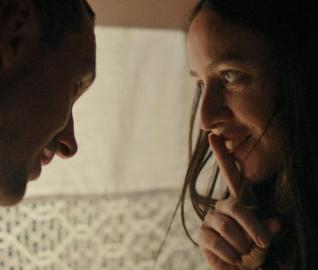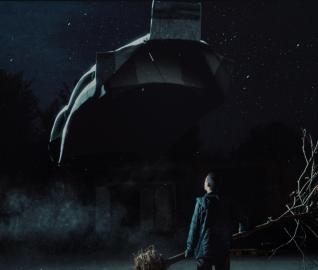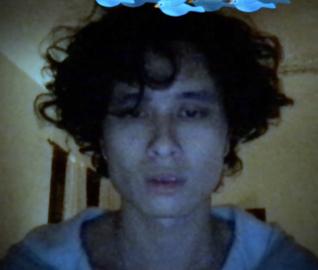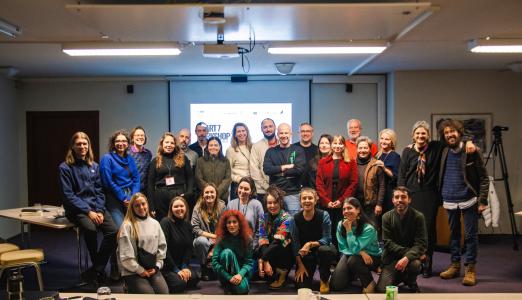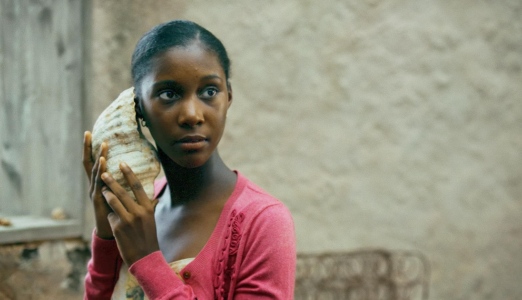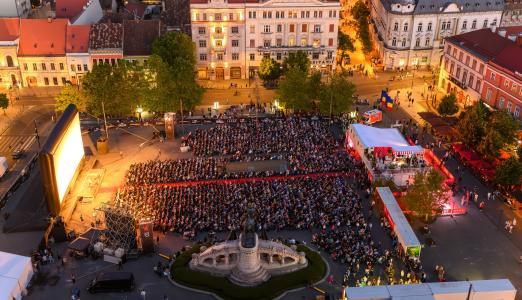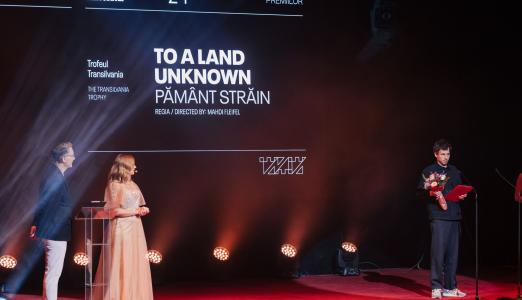The future doesn’t have to be dystopian. There is also hope—be it in films or people. This year, TIFF debuts the Teen Spirit section, featuring films for Gen Z and a jury composed of teenagers. What can you tell us about this section, the jury, etc.?
Teen Spirit follows in the footsteps of the EducaTIFF program, narrowing its scope to the 16+ age range in an effort to engage this demographic, which is largely absent from film festivals. It offers a personalized selection of films with, about, and for teenagers. We’re opening up to Gen Z in hopes of building a rapport with a generation whose relationship with the world is significantly different from those who’ve been attending TIFF for over two decades. We want to know the extent to which teens see themselves in the films of this new section, and we've invited not professionals, but young people from Cluj—ages 16 to 20—to serve as jurors and choose their favorite. The initiative caught on instantly: within days of the call, over 150 entries were submitted. While reading the applications, I was pleasantly surprised to find articulate, curious, experience-hungry teens eager to communicate and passionate about cinema. This year’s festival opener, Christy—a tender, empathetic coming-of-age film—is dedicated to them. Personally, I’m eager to see how they react to Southern Chronicles, a Lithuanian film about what it meant to be a teenager a generation ago, in the wild ’90s, exploring identity, love, and coming of age in a time of massive social transformation.
Speaking of the future, we can’t forget short films and debuts. This year includes five debuts from the UK and a ton of predominantly student shorts across Romanian Days and the Local Competition. What are this year’s trends among young filmmakers?
I avoid early verdicts—many filmmakers have radically shifted style and theme between shorts and features. This year’s Romanian Days shorts selection strikes me as solid and eclectic, across a delightful variety of genres—better, in fact, than the features. There’s even a delightful superhero short. Predictable but refreshingly quirky, the British debuts in the Give Me Five section are the remnants of an initially planned Focus on the UK, scrapped last-minute due to logistical issues. Still, we kept five titles that I highly recommend for their contagious freshness and inventiveness: The Ceremony, Paul and Paulette Take a Bath, Sunlight, Layla, and Restless. Also worth noting, one former Local Competition winner, Vasile Todinca, returns to Romanian Days this year with a new short (Alișveriș), fresh from Cannes.
Let’s talk about this year’s Focus: Estonia. From saunas and sci-fi to sequels and satire—what titles do you recommend from this kaleidoscope of Baltic cinema?
The sauna is a true institution in Estonia (it appears in at least three of the 13 films in the program), and it’s partly thanks to it that this country focus exists—specifically due to the breakout documentary Smoke Sauna Sisterhood from two years ago. In connection with Teen Spirit, don’t miss Smile at Last, a restored ‘80s classic whose raw naturalism in portraying fractured yet hopeful adolescent worlds is striking. If Radu Jude were born in Estonia, he would surely have made the two wild, abrasive Alien films about the episodic misadventures of Valdis (dir. Rasmus Merivoo). These are irreverent, excessive parodies that gleefully mash up current trends, risking outrage from all directions.
Of course, the 3x3 section includes Estonia’s Rainer Sarnet, joined by Rodrigo Cortés and Adilkhan Yerzhanov. How do these three voices align and differ from a curatorial standpoint?
Sarnet’s filmography is exuberantly diverse—each film a change of lane, from his modern adaptation of Dostoevsky’s The Idiot to his most recent genre cocktail, The Invisible Fight, with cheeky Orthodox monks doing kung-fu, and the haunting folk-horror fairy tale November. Kazakh director Yerzhanov, by contrast, essentially makes one and the same film dressed in wildly unique clothing each time. He’s one of the few true auteurs, building a singular universe with its own rules, where humor coexists organically with absurdity, naivety, poetry, violence, and cinephilia. Then there’s the Spaniard Cortés, known for dark, high-concept films—he’s the author of my favorite film at TIFF this year: Escape. At first glance it seems like just a thriller, but when you realize how obsessively the protagonist chooses to abandon all privileges and commit horrific acts just to lose his freedom and end up in prison, it becomes terrifyingly authentic, devastating, and deeply relevant to today’s world. Pure Nietzsche.
Let’s not forget the Official Competition, which you described as “a strange Babel.” Can you elaborate? What directions should we watch out for in this year’s competition?
Best to leave your compass at home and lower your guard—especially when diving into the Möbius spirals of Hysteria, The Peacock, and Rains Over Babel, or tackling the stylistic and narrative challenges of Acts of Love, Xoftex, and Debut. The 12 titles vying for the Grand Prize all explore, overtly or subtly, the idea that we live in a world where no one understands each other, where people can’t make sense of it all, and where one concept of reality doesn’t comprehend another. But while reality may offer no solutions, great films manage, through artistic transfiguration, to make sense of it, to offer keys for understanding, perhaps even a way forward. That’s the power of art.
